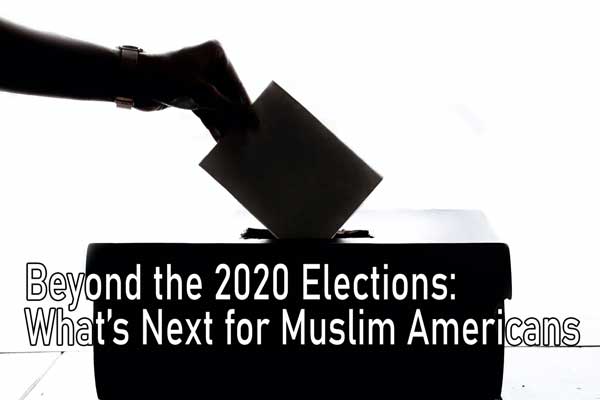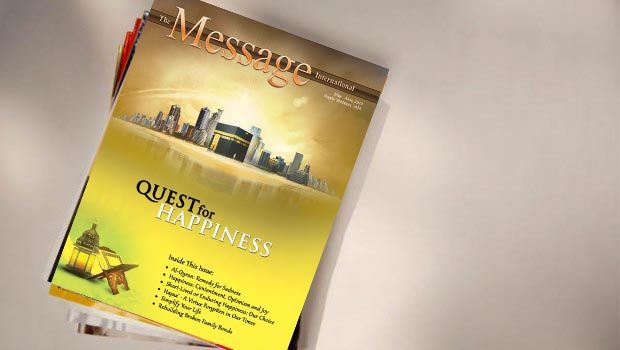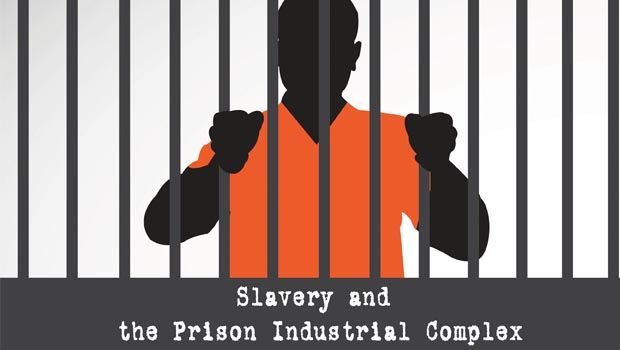The 2020 U.S. presidential election has often been described in hyperbolic terms by journalists, political hacks, and social commentators as being the “most important election in the history of the republic.” While the truth of this observation may be questioned by some, it is credible to say that only in the period leading up to and during the Civil War, in the 1850s and 1860s, do we find a comparable era when the American people were so socially and politically polarized. A sense of racial superiority and support of the institution of chattel slavery fueled 11 Southern states to secede from the Union in 1861 and set up an independent government called Confederate States of America. What followed was the deadliest war in the history of this country, resulting in over 618,000 combatants being killed.
The historic election of Barack Hussein Obama in 2008 as the country’s first Black president was interpreted by a significant number of Americans as signaling a post-racial America. This perspective was soon debunked by subsequent events. In the immediate aftermath of Obama’s election, hundreds of cases of racially inspired hate crimes and other acts of intimidation against Blacks and ethnic minorities skyrocketed to levels unseen since at least the middle of the last century. The FBI and other intelligence agencies reported more credible death threats against Obama than any of his predecessors in the White House. Beyond the racist epithets and crude characterizations of Barak and Michelle Obama as apes or monkeys, and accusations that he was not born in the U.S., Obama was doggedly accused of being a Muslim, a claim that he repeatedly denied. The fact that his being labeled a Muslim was intended to be a denunciation is a testament to the climate of Islamophobia that existed in the United States at that time.
Donald Trump’s election in 2016 was to a large degree a racist backlash against Obama. Trump’s unapologetically equivocal attitude toward White supremacist and neo-Nazi groups, and his refusal to condemn the extrajudicial killing of unarmed Black men and women by police officers across the country, have emboldened these groups. In addition, Trump’s draconian immigration policies for Latin America are unparalleled in the modern era. His patently Islamophobic statements and travel bans on citizens from seven Muslim-majority countries to the United States have militated against Muslim Americans being accepted as full citizens, regardless of historical and present contributions to society.
Muslims in Early America
Muslims in America represent the most ethnically diverse population in the world. Enslaved African Muslims were forcibly brought by the Spanish to the area in and around present-day Florida as early as the 1560s. Prior to becoming the third president of the United States, Thomas Jefferson was the governor of Virginia and he significantly influenced the Virginia state legislature to insert clauses in the state constitution that prohibited the establishment of a state-sponsored religion. He also persuaded the same of the framers of the U.S. Constitution.
Those who wanted an official religion presumed that it would, of course, be Christianity. Most early 18th century Protestant Christians believed that the Islamic religion was outside the realm of an acceptable faith while others, like Jefferson, opined that the new nation should offer full citizenship to those outside the mainstream religion of Protestant Christianity. While Jefferson espoused concepts of freedom and equality for all men, he held hundreds of enslaved Africans on his Monticello plantation. The probability is great that at least a few of these were Muslim based on their West African origins and census data from the 1790 census. Jefferson had a fascination with the various religions and their teachings and, as a young lawyer, he purchased in 1765 an English translation of the Qur’an, a 1734 edition. But his advocacy for full citizenship rights for Muslims was presented hypothetically, as most Americans, including Jefferson most probably, were not aware at that time that many of the African slaves were Muslim. But even in the hypothetical, Muslims were not looked upon favorably. So, for Jefferson, they served as an indicator of whether a universal tolerance and guarantee of constitutional rights for all people would be enshrined in the Constitution.
In 1807, Jefferson got definitive proof that Muslims, literate no less, were among the enslaved Africans. He received two hand-delivered manuscripts from Muslim fugitive slaves, written entirely in Arabic, appealing for their release from slavery. The Arabic verses were passages from the Qur’an addressing bondage and freedom. When Louisiana native Ira Nash delivered the manuscripts to the president, the two Muslims were moving eastward along the Cumberland River in Kentucky and Tennessee, hoping to return to Africa. The president was unsuccessful in locating the fugitives to free them.
During the colonial period, there were many Christian denominations, including Anglicans, Baptists, and Presbyterians, and there were conflicts and persecutions by one Christian group against another. Later, in the 1800s, there were tensions between Protestants and Catholics, and violent attacks were aimed at Irish Catholic immigrants. In the early 1800s, Mormons were chased out of a number of Northeast states until they finally settled in Utah. The town where they settled was burned to the ground in 1844 by anti-Mormon agitators. The first occurrence of anti-Jewish sentiment was in the late 1800s. Considering this backdrop of religious conflict among various denominations and religions, it is not surprising that there was antipathy toward Muslims. But, again, because most Americans at that time didn’t personally know Muslims, it was a theoretical antipathy, with a perception of Islam as a foreign, violent religion. The animus toward Islam and Muslims by White Protestant Christians in 17th and 18th century America had been inherited primarily from European Catholic church doctrine and the general public attitude toward a faith they knew little about.
Prince Among Slaves
Even though the relatively few Muslim immigrants and the thousands of enslaved African Muslims were forced to operate on the margins of Colonial American society, often practicing their religion clandestinely, the existence of a Muslim presence was at times dramatically thrust into the national spotlight. One such example is that of Ibrahima Abdul Rahman Sori. Born in 1762 into a royal family in what is modern-day Guinea, he was captured in a tribal battle and sold into slavery at the age of 24. After Abdul Rahman’s chance encounter in Natchez, Mississippi with John Cox, a British doctor who had met Ibrahima decades before in his home village of Futa Jallon, Cox and his son tried for years, unsuccessfully, to purchase Abdul Rahman’s freedom. They were able, though, to publicize the story of the prince among slaves, making it known in Natchez and even beyond the state of Mississippi. In 1828, after Ibrahima had spent 40 years in captivity, President John Quincy Adams and his Secretary of State, Henry Clay, received a request from the Sultan of Morocco to release Abdul Rahman. After his emancipation, Abdul Rahman embarked on a high-profile national campaign to try to raise funds for the freedom of his wife Isabella and their nine children. He and Isabella returned to West Africa, but Abdul Rahman died before making it back to his village.
Canaries in the Coal Mine
Since the inception of the nation, Muslims and African-Americans have been the proverbial canaries in the coal mine, signaling whether true and full citizenship rights will be granted to all Americans. Despite fighting bravely in every war that the United States has fought and contributing much to the success and betterment of this nation, the loyalty of African Americans and Muslim Americans is again and again challenged by elected officials and opinion poll respondents after every incidence of foreign or domestic terror, even though according to the Center for Strategic & International Studies, “Right-wing attacks and plots account for the majority of all terrorist incidents in the United States since 1994, and the total number of right-wing attacks and plots has grown significantly during the past six years. Right-wing extremists perpetrated two thirds of the attacks and plots in the United States in 2019 and over 90 percent between January 1 and May 8, 2020.”
During the decades of the 1950s and 1960s, millions of African Americans were influenced in their understanding of structural racism by the brilliant oratory and searing analysis of American society by Malcolm X. For 12 years, Malcolm X was the national spokesman for Elijah Muhammad and the Nation of Islam. He announced his departure from the organization on March 8, 1964, becoming one of the most prolific da’ees (callers to orthodox Islam) in the history of this country. Millions of African Americans have been influenced by his example to embrace Islam and actively engage in civil society. The Nation of Islam was a Black separatist, heterodox Muslim organization that served as a counterpoint to the integrationist efforts of the Civil Rights Movement. The message of Malcolm and the NOI held wide appeal to African Americans, particularly those trapped in cycles of poverty, drugs, and general disadvantage and hardship due to systems of oppression imposed on their communities. Prior to the 1970s, many “orthodox” African American Muslims were disengaged from the political system in the U.S. Thousands of African American Muslims started to vote and otherwise participate in “mainstream” American pursuits due the influence of Imam Warith Deen Mohammed. Imam Mohammed took over the leadership of the NOI after the death of his father, Elijah Muhammad.
The circumstances surrounding the path to citizenship of immigrant Muslims coming to the U.S. could not have been more glaringly different from that of African Americans. After being kidnapped and forcibly brought in the bowels of slave ships to this country, African people were enslaved for roughly 250 years and denied de facto citizenship until the passage of the 14th Amendment to the Constitution in 1868. In contrast is the experience of immigrant Muslims. Since the passage of the Immigration and Naturalization Act of 1965, Muslims from Muslim-majority countries were allowed entry to the United States if immigration authorities classified them as having potential benefit to the country. This process of selective immigration essentially allowed only the brightest and most educated Muslims to enter. These new Muslim arrivals were almost uniformly classified as White for immigration purposes. Upon arrival, many of these immigrants were afforded amenities and perks that had been denied people of African descent due to structural racism. Hence, over the succeeding decades, the civic engagement of immigrant Muslims generally exceeded that of African American Muslims, especially in relationship to the electoral arena.
The rise of Islamophobia in the U.S. since 9/11 has arguably created the greatest challenge to American Muslims. Hate crimes against Muslims have exponentially increased over the years as some elected officials ramp up negative rhetoric against the Muslim presence in this country. Still, Muslim immigrants to the U.S. have had a rather seamless transition into professional careers and business ownership, affording the Muslim community here the distinction of being the most educated and highest-earning Muslim population in the world.
Active Participants in Civic Engagement
Muslims in America must make critical decisions about our individual and collective actions moving forward. Our rights, privileges, and social opportunities are no longer discussed in abstract terms like during the formative days of the republic. We are no longer living on the margins of society but rather are increasingly active participants in civic engagement and social justice areas that are so important to our existence as Muslims. It is critical that we be clear about our Islamic identities and not immerse ourselves in pursuits, no matter how well intentioned, that take us away from our Islamic duties to Allah SWT, to ourselves, and to others. To a large degree, our actions are predicated on our knowledge and experiences. It is imperative that our Muslim leaders know and understand the history of this land. Otherwise, as so succinctly stated by Dr. Martin Luther King, Jr., we risk “leading our people into a burning house.” There is an expression that many Christians ruminate about when deciding a course of action: “What would Jesus do?” — (peace be upon him). Maybe, as Muslims, we should ask ourselves and one another as we chart our political and social collective paths, “What would Prophet Muhammad (peace be upon him) do?”





